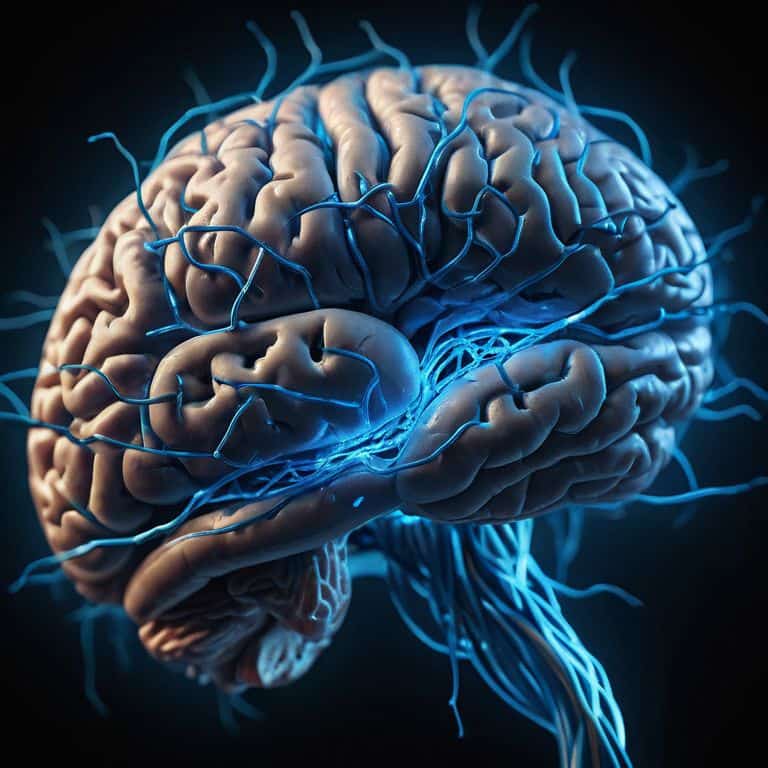As I hit the trails for my morning run, the crisp air and scent of damp earth always bring me back to the question: can you change your personality? It’s a topic that’s been debated ad nauseam, with self-proclaimed gurus touting expensive workshops and magic formulas that promise to transform you into a completely new person. But let’s get real – most of these claims are nothing more than pseudoscience masquerading as profound insights. I’ve spent years studying the human brain, and I can tell you that the truth is far more nuanced.
In this article, I promise to cut through the noise and provide you with evidence-based advice on whether it’s possible to change your personality. I’ll draw from my experience as a neuroscientist and wellness consultant to give you a clear, no-nonsense understanding of what the science says. We’ll explore the complexities of personality formation, the role of environment and genetics, and what it really takes to make meaningful changes in your life. My goal is to empower you with practical knowledge, not to sell you on a quick fix or a fancy personality test. So, let’s dive in and separate fact from fiction on the age-old question: can you change your personality?
Table of Contents
- Rewiring Your Mindset
- Can You Change Your Personality
- Empowering Stories of Successful Personality Development
- State vs Trait Theory in Personality Transformation
- Practical Steps to Personality Evolution
- Key Takeaways for Transforming Your Personality
- Rethinking Personal Growth
- Embracing the Journey of Self-Transformation
- Frequently Asked Questions
Rewiring Your Mindset

As we delve into the concept of personality transformation, it’s essential to understand the role of neuroplasticity in rewriting our mental scripts. By incorporating _neuroplasticity exercises for personality_ development, individuals can rewire their brain’s response to various stimuli, ultimately leading to a shift in their personality traits. This process involves creating new neural pathways and strengthening existing ones, allowing for a more intentional approach to personality development.
Through _changing habits for personal growth_, individuals can tap into their brain’s ability to reorganize itself in response to new experiences. By adopting intentional personality trait development strategies, people can gradually modify their behavior, thoughts, and emotions, leading to a more profound transformation. This approach acknowledges that personality is not fixed and can be influenced by our experiences, environment, and choices.
As we explore _state vs trait personality theory_, it becomes clear that our personalities are not static entities. By focusing on personality development strategies that foster self-awareness, emotional regulation, and intentional habit formation, individuals can embark on a journey of _personality transformation stories_ that are both empowering and inspiring. By embracing this process, people can unlock their full potential and develop a more authentic, compassionate, and resilient version of themselves.
Intentional Trait Development Through Habits
As we explore the realm of personality transformation, it’s essential to consider the role of habits in shaping who we become. By practicing intentional habits, we can gradually cultivate new traits that align with our desired personality. This might involve adopting a daily routine that promotes mindfulness, such as meditation or journaling, to increase self-awareness and emotional regulation.
Through consistent effort, we can develop new patterns of thought and behavior that eventually become automatic. Consistency is key in this process, as it allows us to reinforce new neural pathways and strengthen our ability to respond to challenging situations in a more intentional way.
Neuroplasticity Exercises for Personality Shifts
As we delve into the concept of personality transformation, it’s essential to explore the role of neuroplasticity in reshaping our minds. By incorporating specific exercises into our daily routine, we can begin to rewire our brain’s neural pathways, paving the way for a shift in our personality. This can be achieved through practices such as meditation and cognitive training, which have been shown to increase grey matter in areas of the brain associated with emotional regulation and impulse control.
One effective way to induce neuroplasticity is through mindfulness practices, which encourage us to become more aware of our thoughts and emotions. By regularly engaging in mindfulness exercises, we can develop a greater sense of self-awareness, allowing us to better recognize and challenge negative patterns of thought and behavior that may be holding us back from achieving our desired personality traits.
Can You Change Your Personality

As I see it, the question of whether one can change their personality is a complex issue that has sparked debate among researchers and the general public alike. Personality development strategies have been proposed as a means to achieve this, but it’s essential to separate fact from fiction. From my experience as a neuroscientist, I can attest that neuroplasticity exercises for personality shifts do hold some promise, but their effectiveness depends on various factors.
The concept of state vs trait personality theory suggests that while certain aspects of our personality may be more malleable, others are more resistant to change. This distinction is crucial when considering intentional personality trait development. By focusing on changing habits for personal growth, individuals can, to some extent, influence their personality traits. However, it’s vital to approach this process with a critical and nuanced perspective, recognizing both the possibilities and limitations.
Through my work with clients, I’ve witnessed personality transformation stories that are both inspiring and instructive. These accounts often involve a combination of self-reflection, intentional habit formation, and a willingness to challenge existing thought patterns. While there is no one-size-fits-all formula for changing one’s personality, changing habits for personal growth can be a powerful catalyst for positive transformation. By embracing an evidence-based approach and acknowledging the complexities involved, individuals can set themselves on a path towards meaningful personal growth and development.
Empowering Stories of Successful Personality Development
As I reflect on the journeys of individuals who have undergone significant personality transformations, I’m reminded of the power of consistent effort. One such story that comes to mind is of a friend who, through dedicated practice and self-reflection, was able to shift from being an introverted and anxious person to someone who is now confident and outgoing.
These stories of personal growth and development serve as a testament to the human capacity for change, and they often involve intentional habit formation. By focusing on building positive habits and traits, individuals can, over time, reshape their personalities and develop a more empowered sense of self.
State vs Trait Theory in Personality Transformation
When exploring personality transformation, it’s essential to understand the state vs trait theory. This psychological concept helps us distinguish between temporary emotional states and enduring personality traits. By recognizing the difference, we can better navigate our emotional landscape and make informed decisions about personal growth.
In the context of personality transformation, neuroplasticity plays a crucial role. As we practice new habits and thought patterns, our brain adapts and changes, allowing us to develop new traits and refine existing ones. This process enables us to move beyond our initial emotional states and cultivate a more resilient and adaptable personality.
Practical Steps to Personality Evolution
- Focus on Developing Keystone Habits: Identify and cultivate a few core habits that have a ripple effect on other areas of your life, such as regular exercise or mindful meditation, to lay the groundwork for broader personality shifts
- Practice Self-Reflection with Journaling: Regularly writing down your thoughts, feelings, and experiences can help you identify patterns, gain insights into your motivations, and develop a greater understanding of yourself
- Engage in Activities that Promote Neuroplasticity: Participate in mentally stimulating activities like learning a new language, playing a musical instrument, or solving puzzles to challenge your brain and enhance its ability to reorganize and adapt
- Cultivate Emotional Intelligence through Empathy and Active Listening: Develop your ability to understand and manage your emotions, as well as those of others, by practicing empathy, active listening, and effective communication to improve your relationships and overall well-being
- Set Realistic, Incremental Goals for Personality Growth: Break down larger goals into smaller, achievable steps, and celebrate your successes along the way to maintain motivation and reinforce positive changes in your personality over time
Key Takeaways for Transforming Your Personality
Embracing neuroplasticity through intentional exercises and habits can lead to significant shifts in personality traits, allowing individuals to develop more desirable characteristics over time
Understanding the distinction between state and trait theory is crucial for effective personality transformation, as it helps individuals recognize what aspects of their personality are more malleable to change
Through a combination of evidence-based strategies, including rewiring mindset, intentional trait development, and learning from empowering stories of successful personality development, individuals can indeed undergo meaningful personality changes that enhance their well-being and relationships
Rethinking Personal Growth
The notion that you’re stuck with the personality you’ve got is a myth – with intentional practice, self-awareness, and a dash of neuroscientific know-how, you can rewire your mindset and cultivate the traits that truly reflect who you want to be.
Dr. Alistair Finch
Embracing the Journey of Self-Transformation

As we conclude our exploration into the question of whether you can change your personality, it’s essential to summarize the key takeaways. We’ve delved into the concept of neuroplasticity, highlighting its role in rewiring our mindsets through intentional practices and habits. The distinction between state and trait theory has also been discussed, providing insight into the complexities of personality transformation. Furthermore, we’ve seen empowering stories of individuals who have successfully developed new traits, showcasing the human capacity for growth and change.
Ultimately, the journey of self-transformation is a deeply personal and ongoing process. It requires dedication, self-awareness, and a willingness to challenge existing beliefs and habits. As you embark on this path, remember that small, incremental changes can lead to profound shifts over time. By embracing the science-backed strategies and inspiration from others, you can unlock your potential for growth and cultivate a more authentic, resilient you.
Frequently Asked Questions
What role do genetics play in determining personality, and can they be overcome through intentional development?
Genetics undoubtedly influence personality, but they’re not the sole determinant. Research suggests that genetic factors account for about 40-60% of personality traits. However, intentional development and environmental factors can still shape and modify your personality, allowing for personal growth and change beyond genetic predispositions.
How long does it typically take to notice significant changes in personality through neuroplasticity exercises and habit formation?
Noticeable changes through neuroplasticity exercises and habit formation can take anywhere from a few weeks to several months. Research suggests that consistent practice can lead to significant shifts in as little as 6-12 weeks, but it’s essential to remember that individual results vary and patience is key.
Are there certain personality traits that are more resistant to change than others, and what are the implications for personal growth and development?
While some traits like extraversion tend to be more malleable, others like conscientiousness can be more resistant to change. Research suggests that traits rooted in deeper cognitive processes, such as emotional stability, may require more effort and intentional practice to modify, emphasizing the need for patience and persistence in personal growth.
